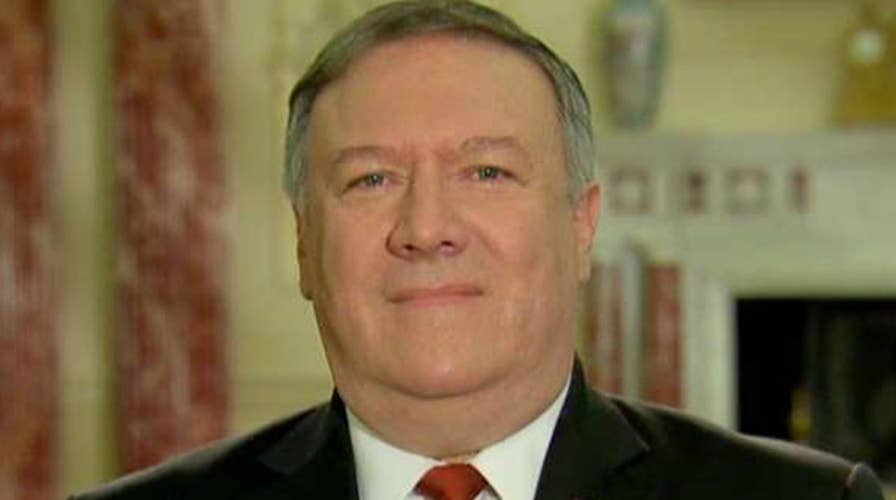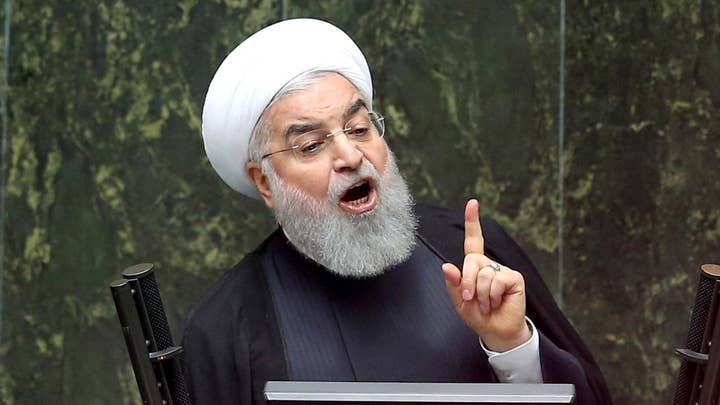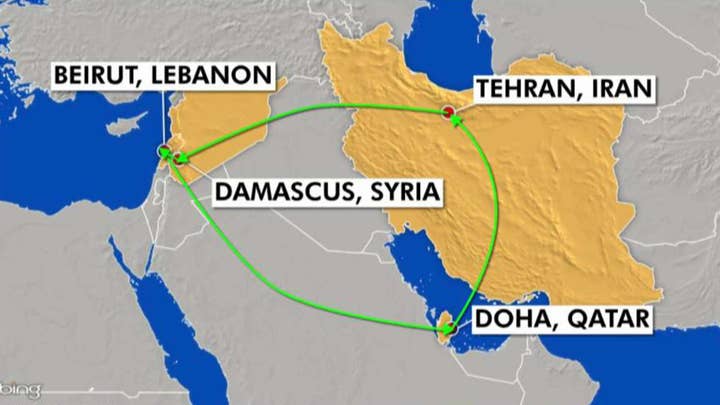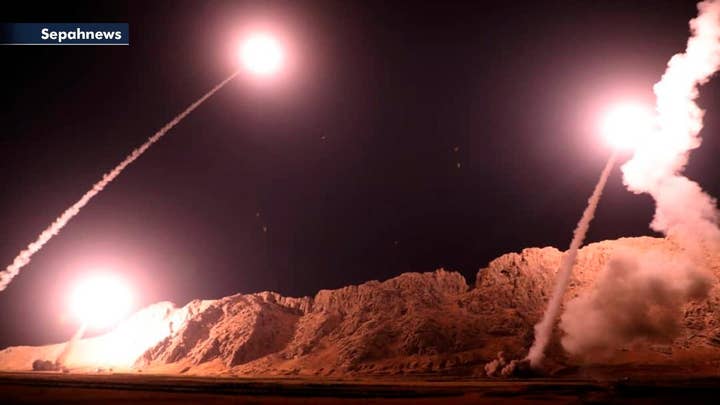Secretary Pompeo on Iran, sanctions and Saudi Arabia
The Trump administration announces the remaining sanctions that were lifted as part of the 2015 Iran nuclear deal will be re-imposed on Monday; insight from Secretary of State Mike Pompeo.
Secretary of State Mike Pompeo on Sunday defended the White House’s move last week to reimpose sanctions against Iran amid criticism from some conservatives that the action does not go far enough to cripple the country’s economy.
"The sanctions that will be reimposed tomorrow are the toughest sanctions ever put in place on the Islamic Republic of Iran," Pompeo said during an appearance on “Fox News Sunday." "They're aimed at a single purpose -- denying the world's largest state sponsor of terror the capacity to do things like the things they've done in the past few weeks."
While Trump removed the United States from the 2015 Iran nuclear deal earlier this year and sanctions are set to be imposed Monday, some critics are upset that some countries received waivers from the sanctions to continue importing Iranian oil.
Pompeo would not identify the countries receiving waivers, but maintained that despite the waivers, "these sanctions have already had an enormous impact." He added that there are eight unidentified nations that "need a little bit more time to get to zero," but “the march to zero continues.”
The waivers will be valid for six months, during which time the importing country can buy Iranian oil but must deposit Iran's revenue in an escrow account. Iran can spend the money but only on a narrow range of humanitarian items.
The sanctions take effect Monday and cover Iran's shipping, financial and energy sectors. They are the second batch the administration has re-imposed since Trump withdrew from the landmark accord in May.
The 2015 deal, one of former President Barack Obama's biggest diplomatic achievements, gave Iran billions of dollars in sanctions relief in exchange for curbs on its nuclear program, which many believed it was using to develop atomic weapons. Trump repeatedly denounced the agreement as the "worst ever" negotiated by the United States and said it gave Iran too much in return for too little.
But proponents as well as the other parties to the deal — Britain, China, France, Germany, Russia and the European Union — have vehemently defended it. The Europeans have mounted a drive to save the agreement without the U.S., fearing that the new sanctions will drive Iran to pull out and resume all of its nuclear work.
In a statement issued Friday night, Trump said, "Our objective is to force the regime into a clear choice: either abandon its destructive behavior or continue down the path toward economic disaster."
Some Iran hawks in Congress and elsewhere said Friday's move should have gone even further. They were hoping for Iran to be disconnected from the main international financial messaging network known as SWIFT.
With limited exceptions, the re-imposed U.S. sanctions will hit Iran as well as countries that do not stop importing Iranian oil and foreign firms that do business with blacklisted Iranian entities, including its central bank, a number of private financial institutions, and state-run port and shipping firms, as well as hundreds of individual Iranian officials.
Treasury Secretary Steve Mnuchin defended the decision to allow some Iranian banks to remain connected to SWIFT, saying that the Belgium-based firm had been warned that it will face penalties if sanctioned institutions are permitted to use it. And, he said that U.S. regulators would be watching closely Iranian transactions that use SWIFT to ensure any of those that run afoul of U.S. sanctions would be punished.
The Associated Press contributed to this report.








